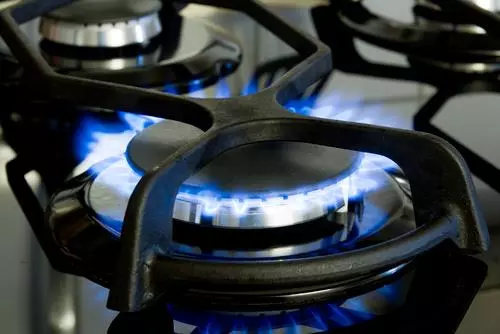The first immediate action to take when you detect a Gas Smell at Home is to open all windows and doors. This helps ventilate the area and allows the gas to disperse outdoors, reducing the concentration of gas inside your home and minimizing the risk of ignition.
Turn Off Gas Appliances: If it’s safe to do so, immediately turn off any gas appliances that are in use or suspected of leaking. This includes stoves, ovens, heaters, water heaters, and any other gas-powered appliances. Avoid using electrical switches or devices, as they can generate sparks that may ignite the gas.
Avoid Flames and Sparks: Do not light matches, candles, cigarettes, or any other sources of open flames or sparks when you detect a gas smell at home. Even small sparks can ignite the gas, leading to a potential fire or explosion. It’s crucial to eliminate any ignition sources in the area.
Do Not Use Electrical Devices: Refrain from using electrical devices, switches, or outlets in the area where you detect the gas odor. Electrical sparks can also ignite the gas, so it’s important to minimize any potential sources of ignition until the situation is resolved.
Evacuate the Premises: If the gas smell is strong or persistent, evacuate the premises immediately. Alert other occupants in the building and leave the doors open as you exit. Move to a safe location outside and away from the source of the gas leak.
Call Emergency Services: Once you are safely outside, call your local gas utility provider or emergency services (such as 911 in the United States) to report the gas leak. Provide them with your address, the nature of the emergency, and any relevant details about the situation. Emergency responders will assess the situation and take appropriate action.
Do Not Return Inside: Do not re-enter your home or building until emergency responders or gas utility professionals have confirmed it is safe to do so. Follow their instructions and recommendations to ensure your safety and the safety of others.
Seek Medical Attention if Necessary: If anyone in your household experiences symptoms such as dizziness, nausea, headaches, or difficulty breathing that may be related to gas exposure, seek medical attention immediately. Inform healthcare providers about the gas smell at home and any symptoms experienced.
Schedule Gas Leak Inspection and Repairs: After the gas leak has been addressed and it is safe to return to your home, schedule a professional gas leak inspection and repairs. Gas leaks can occur due to faulty appliances, damaged pipelines, or other issues that need to be addressed promptly to prevent future incidents.
Educate Household Members: Educate all household members about the smell of gas, the actions to take in case of a gas leak, and the importance of gas safety practices. Ensure everyone knows how to recognize the smell of gas and respond appropriately to ensure the safety of themselves and others in the event of a gas leak.
Taking these immediate actions when you detect a gas smell at home is crucial for minimizing risks, ensuring safety, and preventing potential accidents or injuries associated with gas leaks. It’s important to prioritize gas safety and act promptly to address any gas-related concerns.
Top of Form
